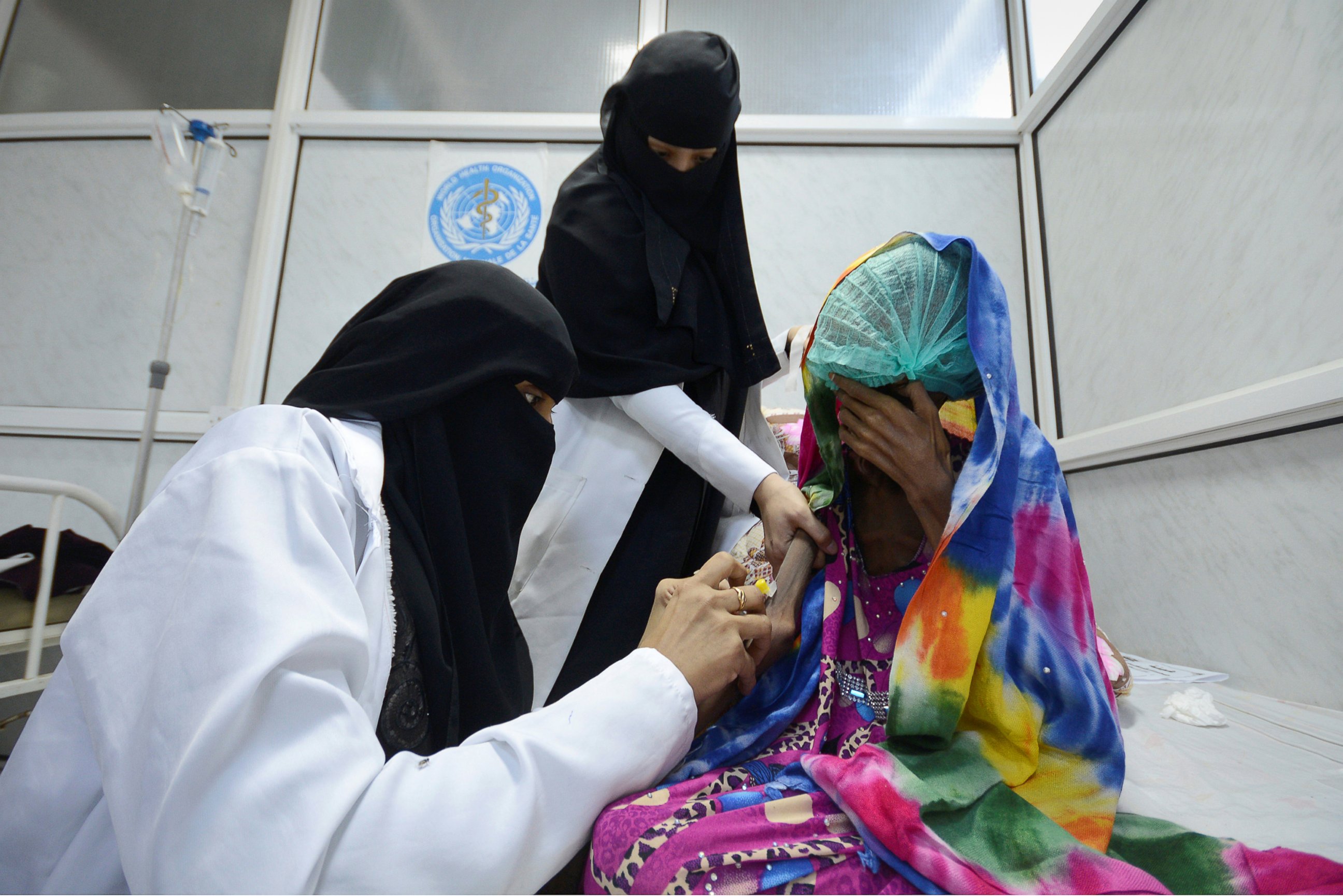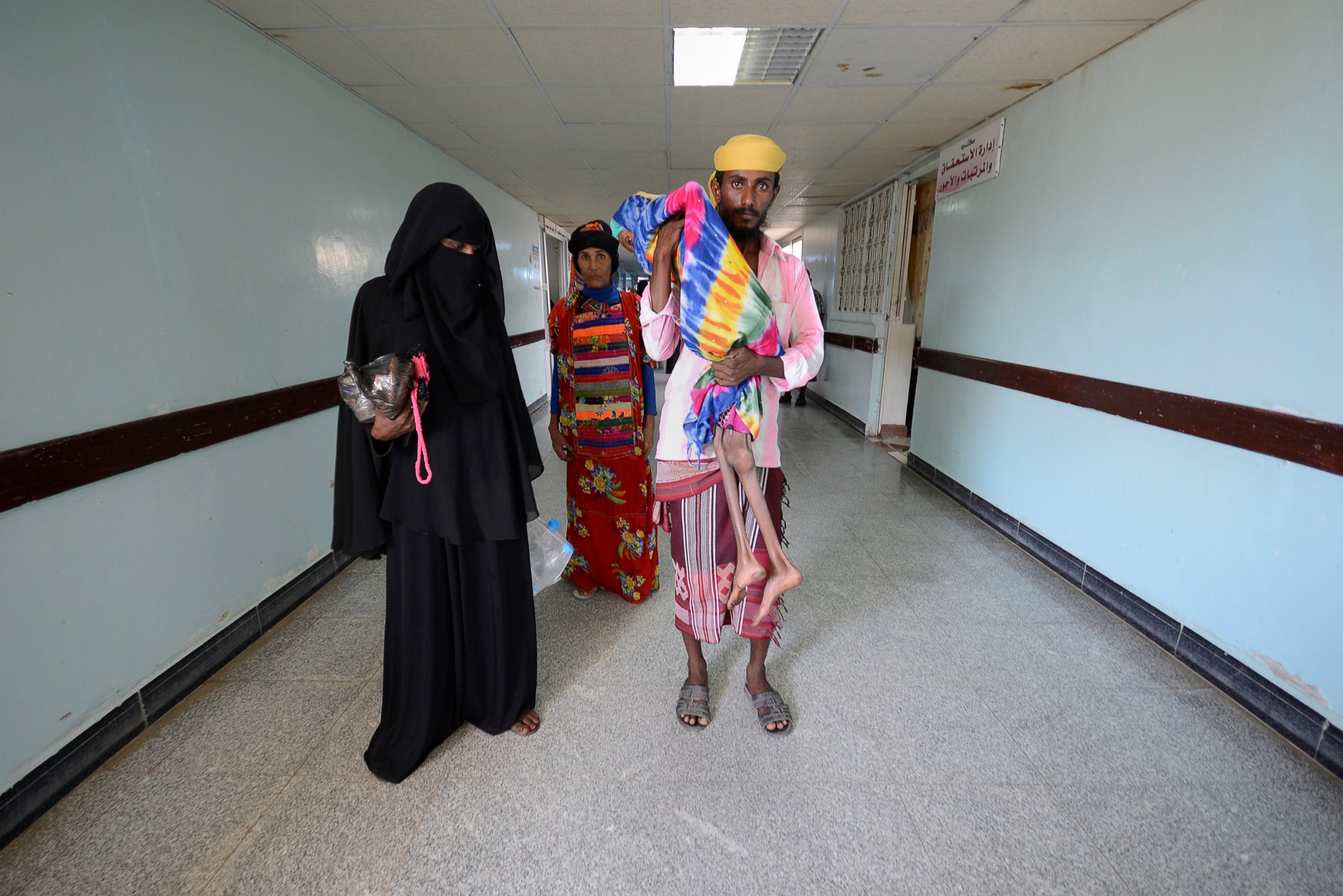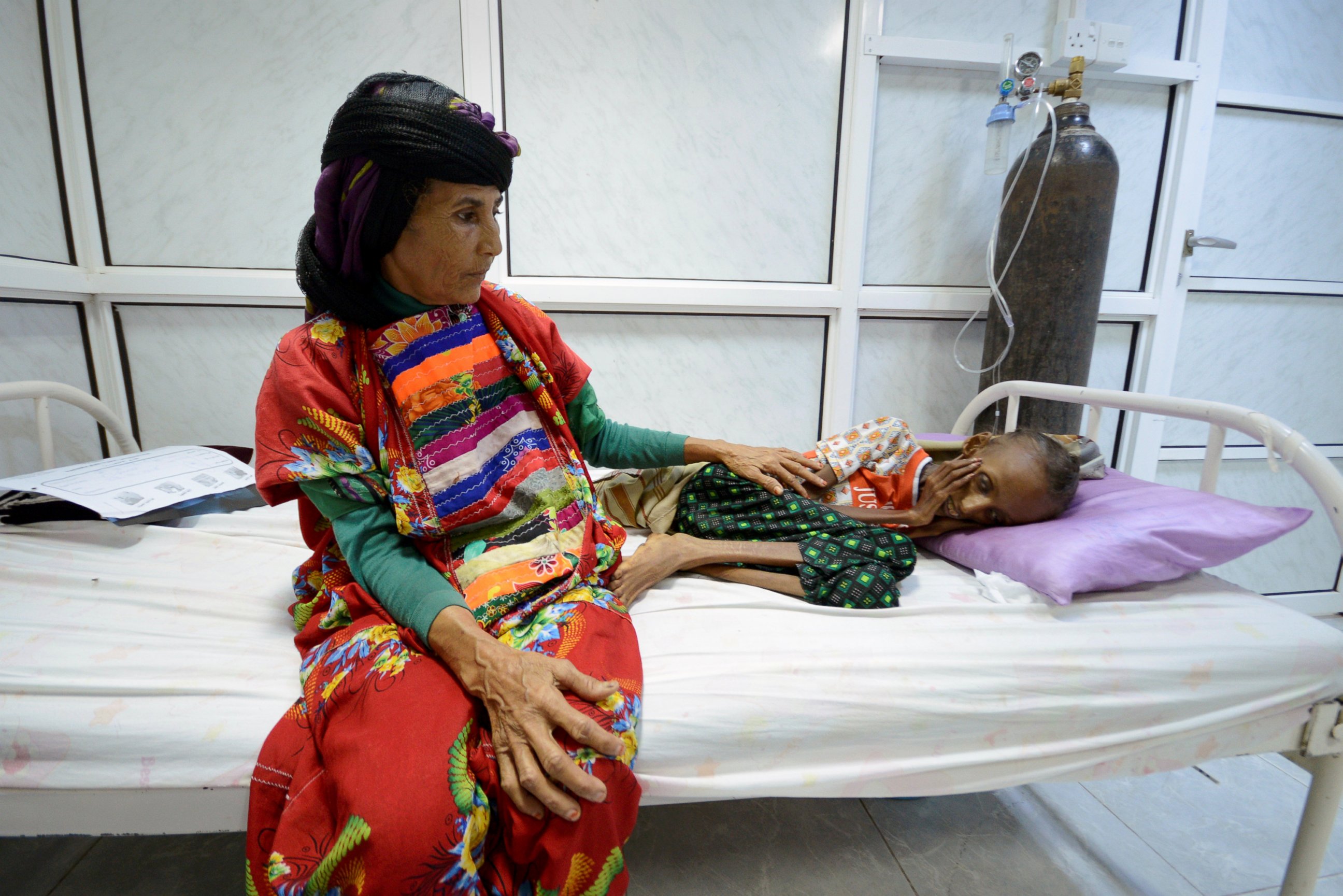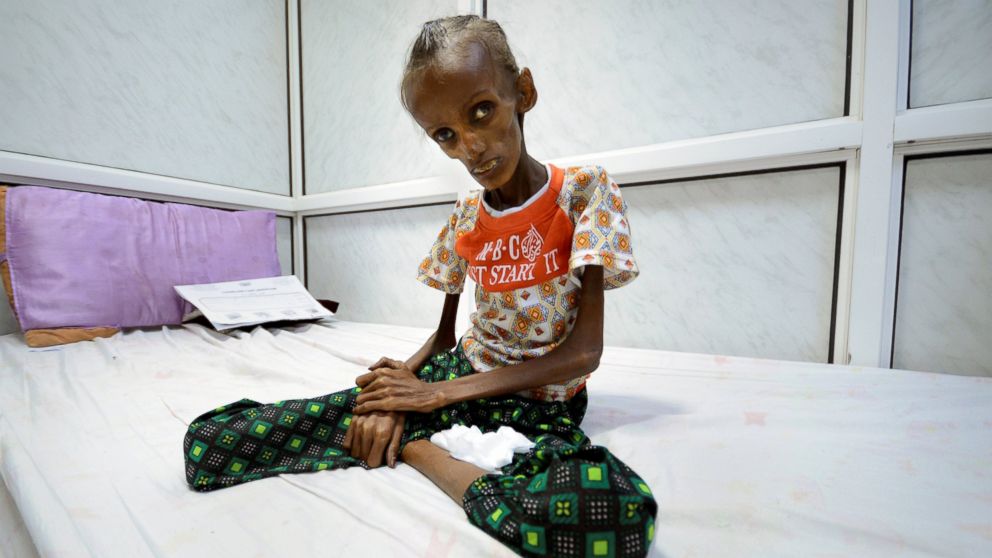Images of Starving People in Yemen Help Show the Horrors of War
— -- The emaciated frame of 18-year-old Saida Ahmad Baghili lies on a hospital bed in the Red Sea port city of Hodaida, her suffering stark evidence of the malnutrition spread by Yemen's 19-month civil war.
Baghili arrived at al-Thawra hospital on Saturday. She is bedridden and unable to eat, surviving on a diet of juice, milk and tea, medical staffers and a relative said.
"The problem is malnutrition due to [her] financial situation and the current (war) situation at this time," said Asma al-Bhaiji, a nurse at the hospital.
Baghili is one of more than 14 million people, over half of Yemen's population, who are short of food, with much of the country on the brink of famine, according to the United Nations.
The U.N.'s World Food Program notes that the conflict in Yemen "has left thousands of civilians dead and 2.5 million internally displaced" over the past year.
President Barack Obama has received criticism for not cutting back on U.S. support for the government of Saudi Arabia, which has been bombing Houthi rebels in Yemen since March 2015 in an effort to strengthen its foothold in the region.

Baghili's picture is a reminder of the humanitarian crisis in the Arabian Peninsula's poorest country, where at least 10,000 people have been killed in fighting between a Saudi-led Arab coalition and the Iranian-allied Houthi movement.
She is from the village of Shajn, about 60 miles southwest of Hodaida, and used to work with sheep before developing signs of malnutrition five years ago, according to her aunt Saida Ali Baghili.
"She was fine. She was in good health. There was nothing wrong with her. And then she got sick," Ali Baghili told Reuters.

"She has been sick for five years. She can't eat. She says her throat hurts."
After the war began, Baghili's condition deteriorated because her family lacked the money for treatment.
She lost more weight and in the last two months developed diarrhea.
"Her father couldn't [afford to] send her anywhere [for treatment], but some charitable people helped out," Ali Baghili said, without elaborating who the donors were.

Reuters, with additional reporting by ABC News' Michael Edison Hayden




